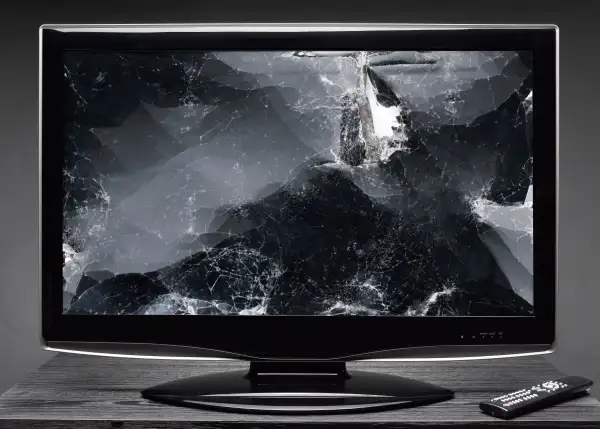Why You Should Skip That Extended Warranty

It's holiday shopping season, and anyone who has recently bought a TV, smartphone, or other expensive piece of equipment has likely been on the receiving end of a hard sell for an extended warranty: That's a nice television you've got there. Would be a shame if something happened to it. And wouldn't you know it? For a mere $59.99, the salesman can offer a little piece of mind in the form of (overpriced) insurance.
It's a pitch that works, even on those who should know better. Sure, the TV costs $750, meaning you're paying 8% extra to protect your purchase. But that's a good deal when the alternative is paying another seven hundred fifty if the machine ever croaks, right?
As the New York Times' Damon Darlin points out, this kind of faulty logic comes from our collective inability to price risk correctly. Realistically, the TV you just purchased probably has a very low failure rate—Darlin cites data suggesting only 2%-4% of brand-name TVs turn out to be lemons. So you should really be multiplying the cost of your purchase by the likelihood it will break. In the case of a $750 TV with a 4% failure rate, he suggests an appropriately priced insurance policy would be $30.
But even Darlin is giving extended warranties too much credit. The real reason most people pay too much for product protection isn't because they don't understand risk (although that's probably also true), it's because they don't understand the economics of insurance in the first place.
The fact is, all insurance policies are overpriced. That's the nature of insurance. Whenever you buy a policy, whether it's for your car, your health, or your television, the company selling it to you is betting you will pay more in premiums than your car repairs or health care will ever actually cost. And these companies employ thousands of very smart people to make sure they're likely to win that wager.
"Even if you do all these calculations, you don't think insurance companies haven't also done the same calculations and for some reason believe they're going to make money nonetheless?" asks Drew Tignanelli, president of the Financial Consulate website. "The way I look at insurance is that it is not designed to save me from every nickel and dime I will lose. If I try that, I will definitely cost myself more than what I'm putting out."
So if insurance coverage is intrinsically overpriced, why do we buy it at all? "Insurance is meant to prevent me from running into a financial catastrophe or devastation," Tignanelli explains. An astronomical medical expense, repair bill, or legal fee is unlikely, but it could mean complete financial ruin. Those outcomes are so terrible that they're worth paying a premium to avoid.
But no matter how much you love Scandal or Game of Thrones, a broken TV is not a catastrophe—financial or otherwise. Most purchases are cheap enough, and their failure rate low enough, for you to safely bet that the product you bought will work for the foreseeable future.
If you're right—and in the case of TVs there's a 96% chance you are—you'll save money. And in the unlikely event it does break, you'll either be able to afford a new one, or at the very least go without for a while. There's also a good chance your credit card provides some amount of warranty protection, or that the cost of repairs will be roughly the same price as an extended warranty anyway.
If you play the odds over time, you're all but guaranteed to come out on top. After all, the entire insurance industry is built on that very assumption.
Do you have the insurance you really need? Check out these articles to find out:
Homeowner's Insurance: Covered? Don't Be So Sure
Here's a New Reason to Think Twice Before Buying Long-Term Care Insurance
How to Do an Insurance Inventory
You Can Now Buy Health Insurance at Walmart—but Should You?
